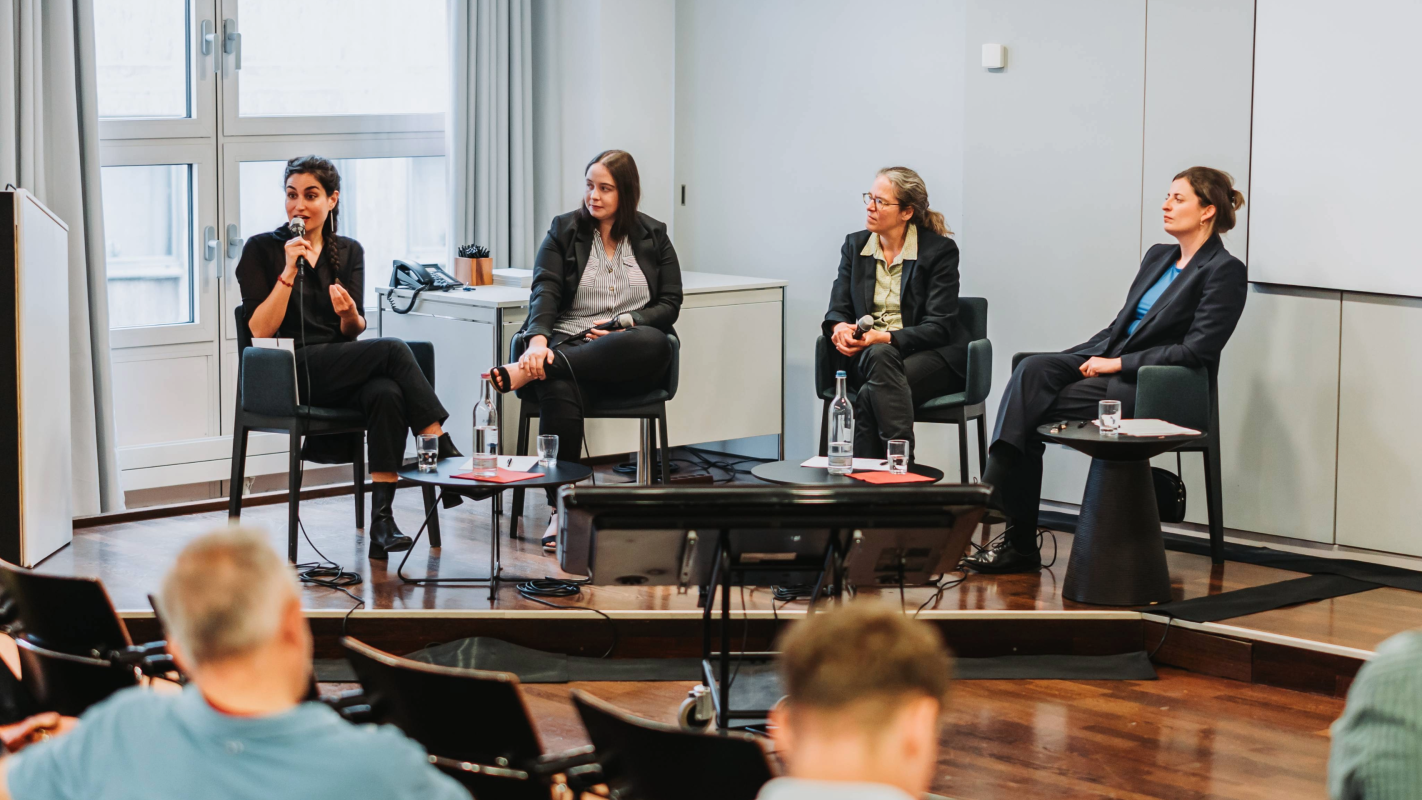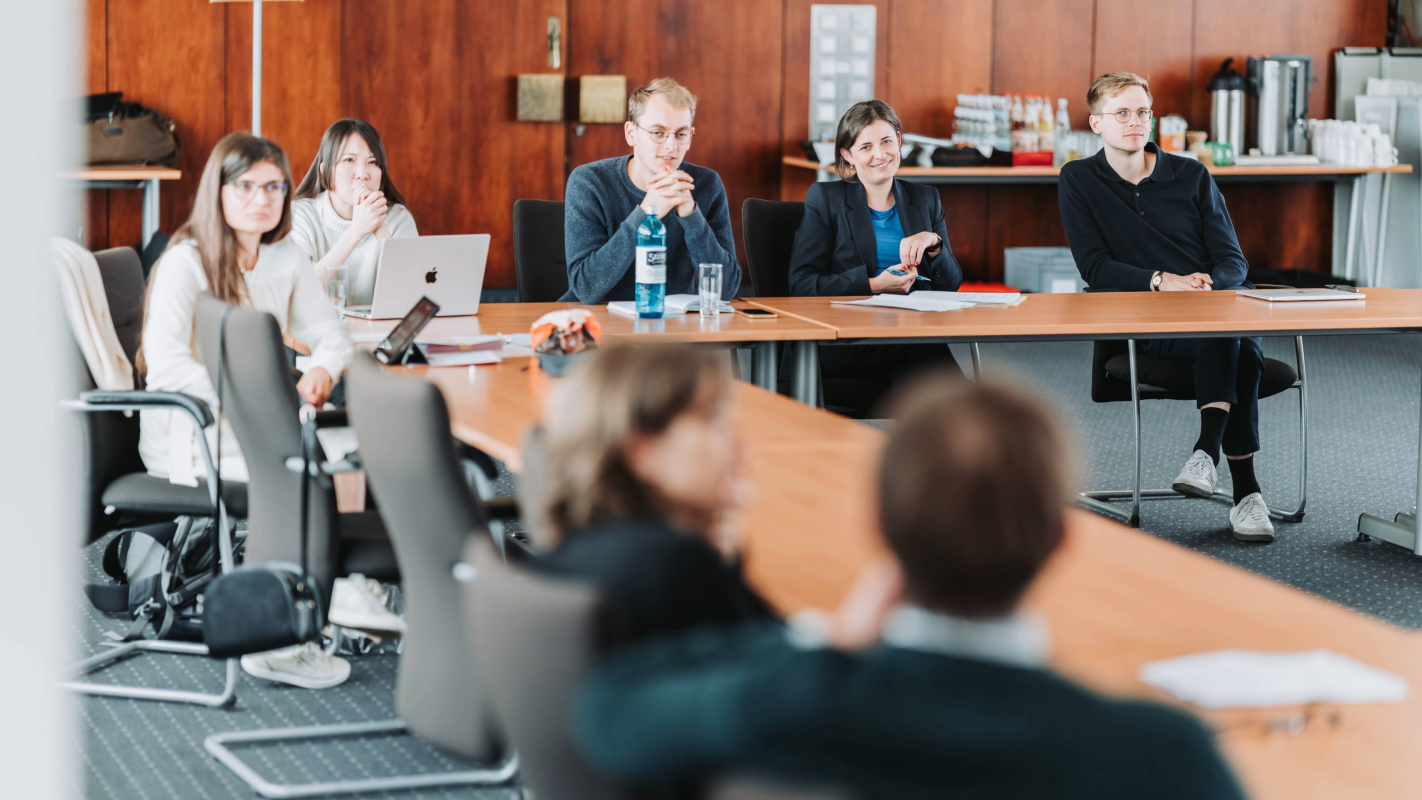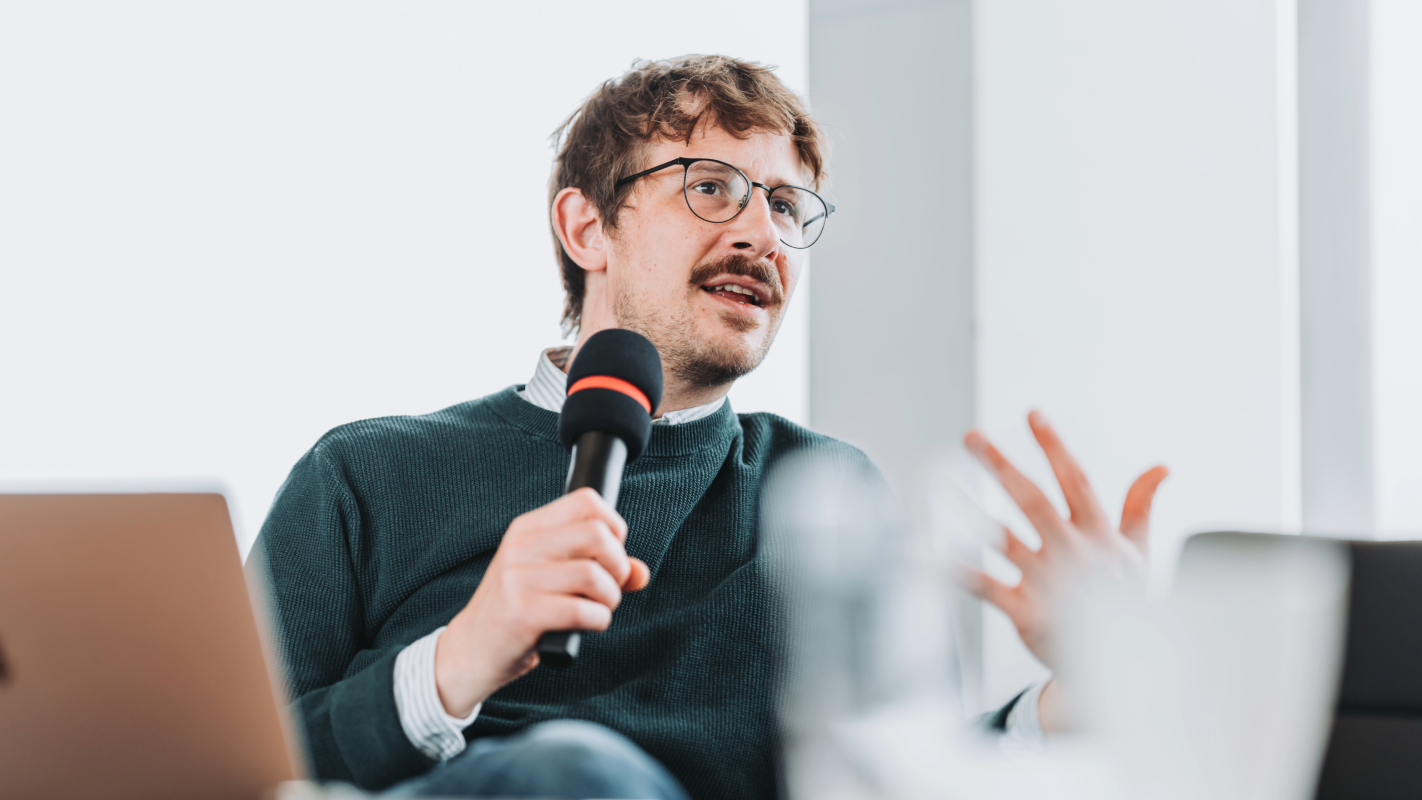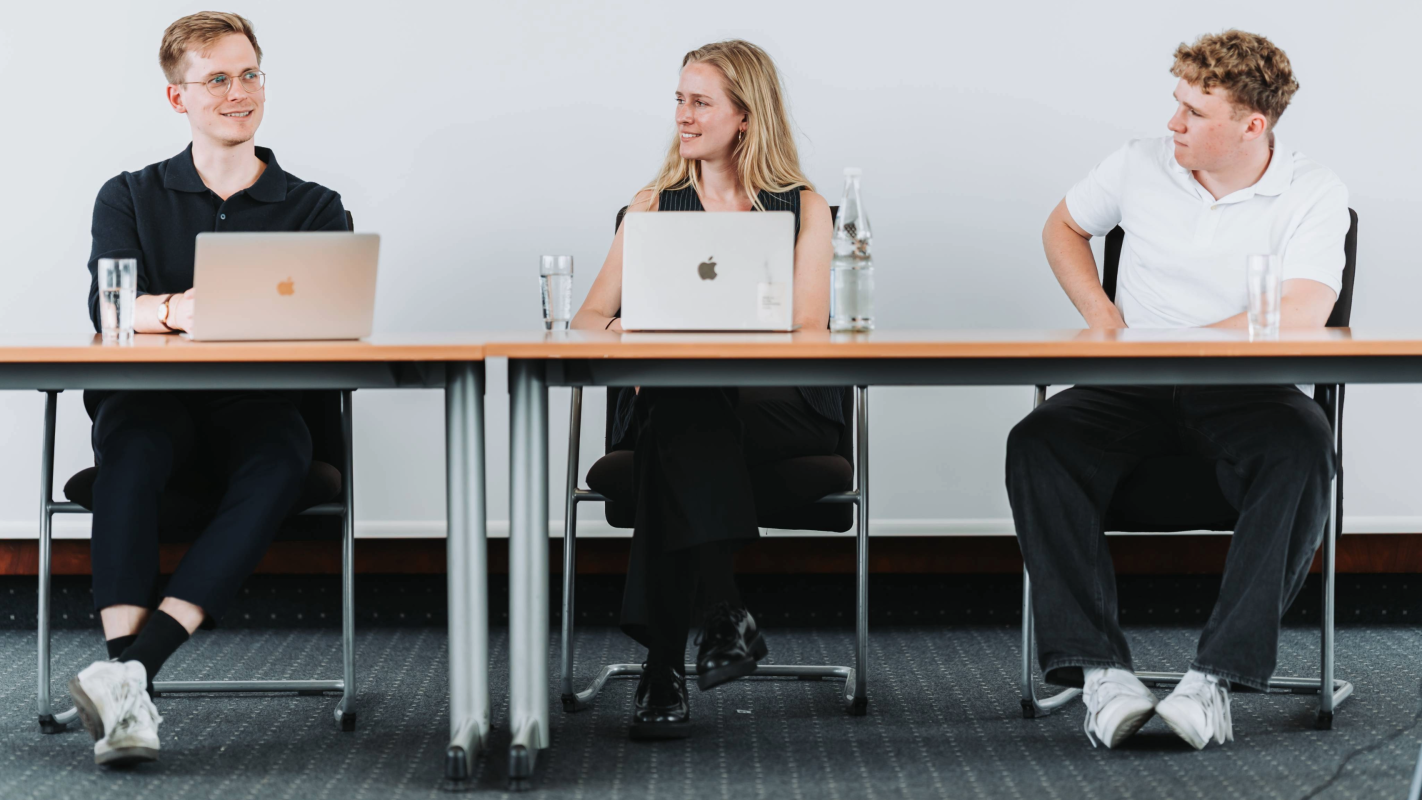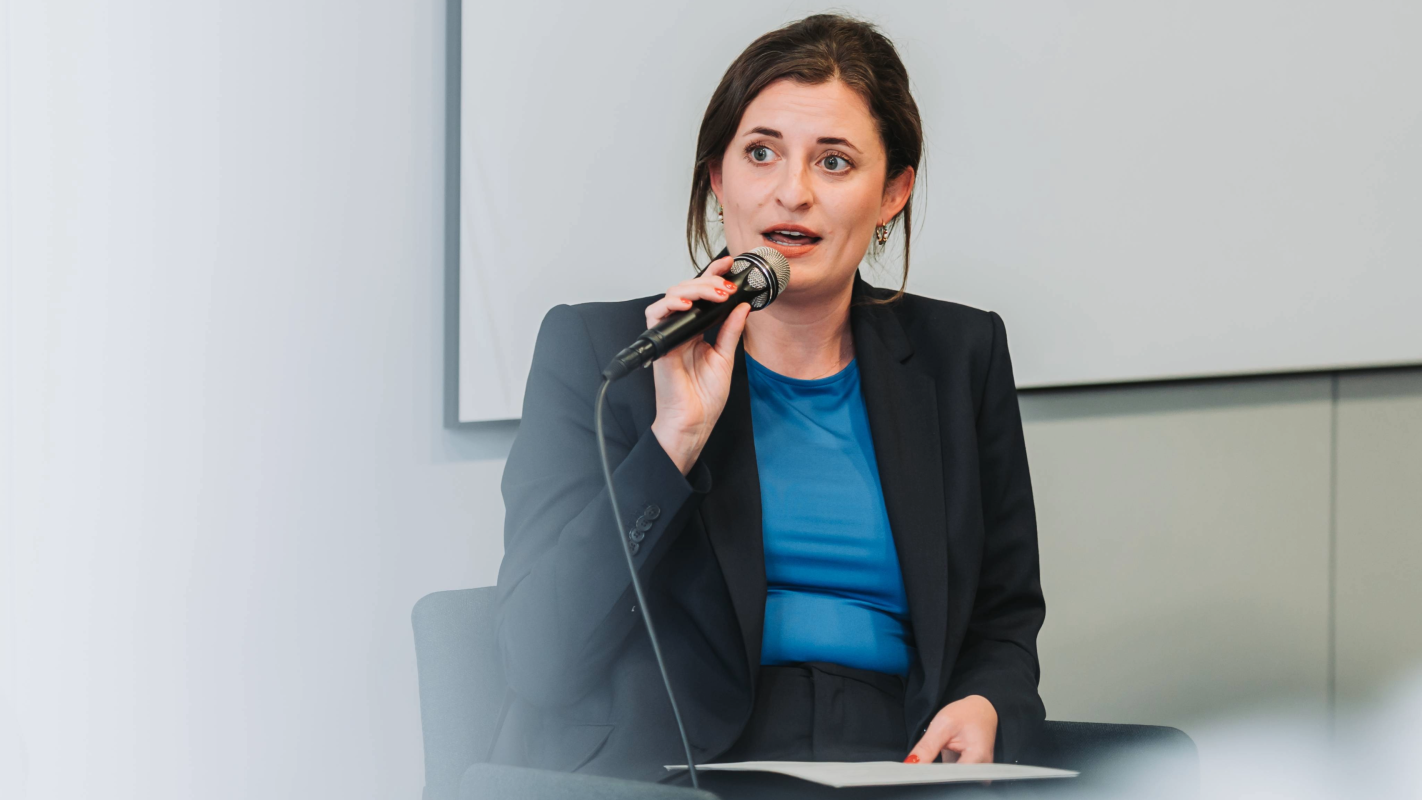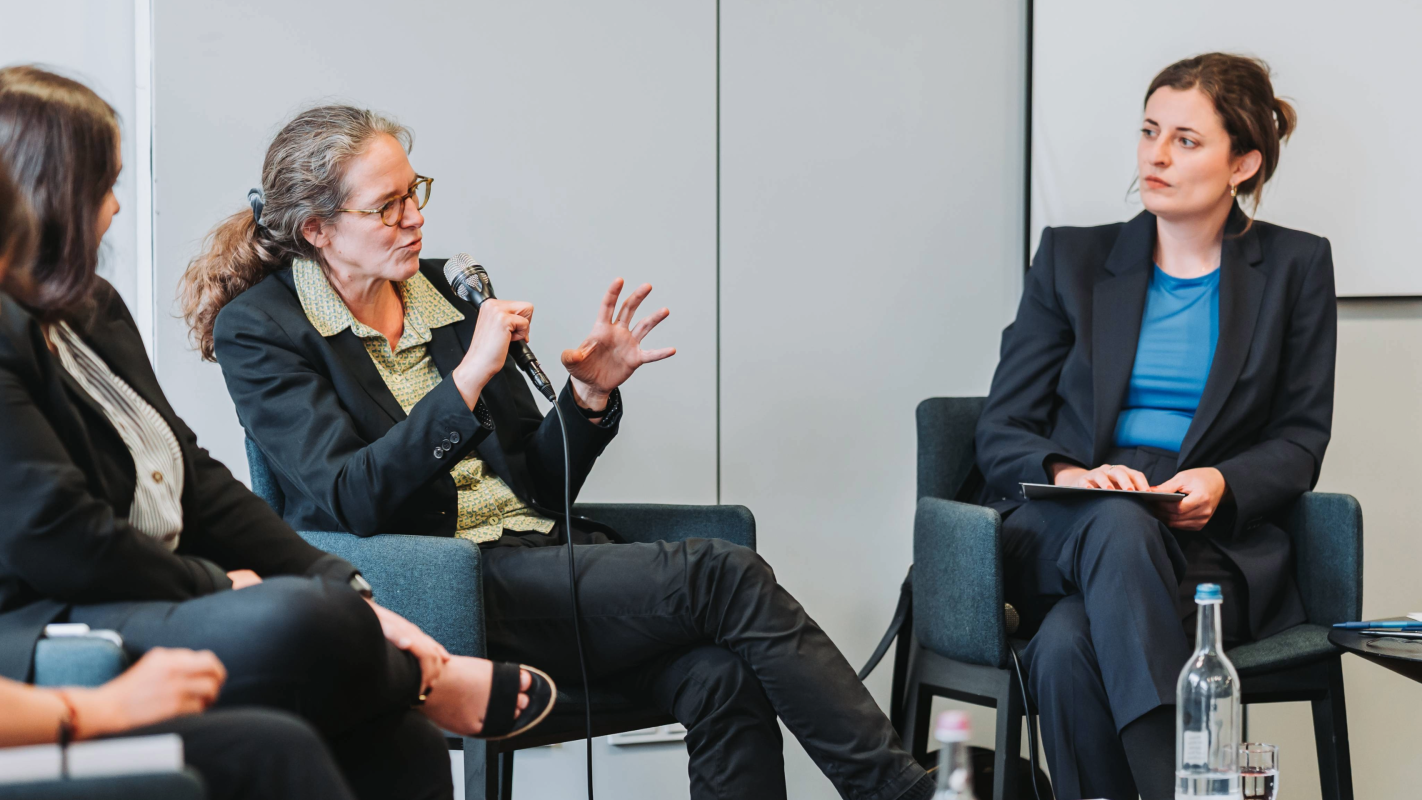„Demokratischer Volkswille und Wille zur Demokratie“ at Johannes Gutenberg University Mainz
Photos: Mert Rüttermann
On 10 June 2025, participants of the conference “Demokratischer Volkswille und Wille zur Demokratie“ (Democratic will of the people and will for democracy) at the University of Mainz discussed questions around participation in democracy from an interdisciplinary perspective and in hybrid form.
What is the legal basis for citizens’ councils and what findings have we gathered for political science regarding the engagement in citizens’ councils? What does the work of municipal development committees look like, where stakeholder from politics, administration, civil society and business come together to develop strategies? These were the questions discussed by Prof. Dr. Daniela Winkler of University Stuttgart, Dr. Felix Petersen of University of Münster and Laura Gerards-Iglesias of Europa-Universität Viadrina Frankfurt (Oder) in the morning.
In the afternoon, Prof. Dr. Luisa Girnus of Freie Universität Berlin held a political science talk on the topic: Was verstehen wir unter Demokratiebildung? (What is our concept of democracy education?). This was followed by a workshop discussion, in which Marie Müller-Elmau of Verfassungsblog explained the legal basis for democracy education in schools and highlighted the political and legal wiggle room used by authoritarian-populistic parties to instrumentalize schools. Peter Maaß provided insights into democracy education in schools from the perspective of a highly motivated high school teacher. He used numerous examples to demonstrate how political engagement within and outside of schools can be fostered within and outside of the classroom. He also warned that social media changes democratic awareness and that, as a consequence, democracy education must also include media education. Quentin Gärtner, newly-elected secretary general of Bundesschülerkonferenz (federal students’ conference), explained that democracy education is no longer up-to-date in many schools. He made the case that the multiple crises faced by young people today, must be acknowledged more and that it is essential to also strengthen the mental health of students.
In the evening, Prof. Dr. Friederike Wapler of Johannes Gutenberg University Mainz, Dr. Samira Akbarian of Goethe University Frankfurt and Sabrina Kleinhenz of Technical University of Darmstadt addressed the issue of participation and representation of children and young people in our democracy in a public panel discussion at Erbacher Hof/Mainz. The panel discussion was hosted by Dr. Laura Anna Klein of Johannes Gutenberg University Mainz. Sabrina Kleinhenz, founding member and member of the management board of Dachverband der kommunalen Jugendvertretungen Rheinland-Pfalz e.V. spoke about how children and young people in our democracy can participate in youth councils. While demographic ageing in Germany is increasing, the majority of the young generation is not entitled to vote. Against this background, Friederike Wapler explained the relationship between representation and participation. The professor for public law whose research focuses on the rights of young people, stressed that it is important to always take children and young people seriously. She argued that this includes lowering the voting age. In view of the fact that it is not always, but very often, young people who occupy forests or block motorways to express protest in our society, Samira Akbarian explained when and what form of civil disobedience is beneficial to our democracy. This was followed by a lively debate with the audience.
The conference was supported by means from the German Thesis Award fund of Körber Stiftung and the Rhineland Palatinate State Center for Political Education.
